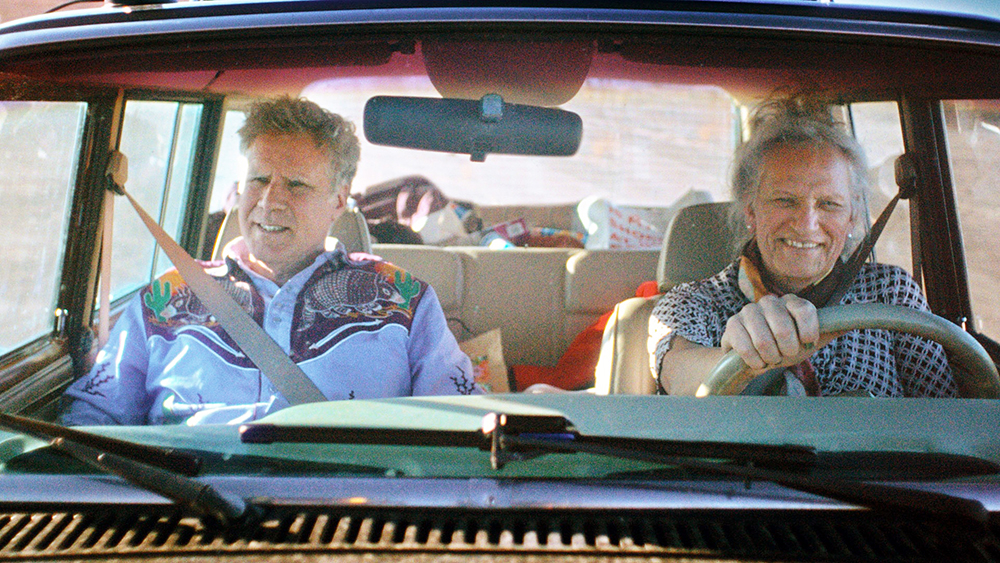Harper Steele and Will Ferrell started working on Saturday Night Live on the same day in 1995. They soon learned that their senses of humor were very compatible. Steele wrote many of the sketches that made Ferrell SNL’s standout star of the ’90s. Years in the SNL pressure cooker at 30 Rock built their camaraderie, and their friendship continued after 2002, when Ferrell left the show to pursue his movie career and Steele became the show’s head writer. They went on to collaborate on several films, including 2020’s Eurovision Song Contest: The Story of Fire Saga.
During this time, Steele had a secret. She was constantly battling gender dysphoria. After going through a messy divorce in the mid-2010s, Steele started journaling about the persistent feelings. Then the pandemic hit and like many people during that time of turmoil, Steele came to the realization that when it was all over, something would have to change. In 2022, Steele started writing emails to her family and friends announcing that she would be transitioning. The new name she chose for herself was Harper, after novelist Harper Lee.
The revelation was less than shocking for many people who had known Steele for a long time. Soon after Ferrell received his email, while he was on the set of a movie, an idea was born. Steele was notorious among friends for going on long, meandering road trips, stopping at greasy spoons, roadside attractions, and small-town dive bars. Steele was fearless, but now as a trans woman, America looked quite different. The small towns Steele loved to visit aren’t exactly known as beacons of tolerance for transgender people. So the two friends decided to embark on an epic, 16-day, 3,000-mile cross-country road-trip from New York City to Los Angeles to introduce the newly transitioned Harper Steele to the country, with Will Ferrell along as moral support.
Production-wise, Will & Harper is a bare-bones affair. It’s just the two stars in a vintage Jeep Grand Wagoneer, followed by a production van captained by director Josh Greenbaum. Originally, the idea was to do comedy sketches at various points along the way, but that plan was pretty much instantly abandoned. Instead, the two friends just have deep conversations in the car and visit the kinds of places they had gone to many times before while going amok in America. Along the way, they cover topics that are familiar to anyone who has ever had a friend come out as trans. Ferrell asks questions about what it’s like to suddenly have boobs (it’s awesome, according to Steele) and whether she’s going to date men or women (at age 61, Steele is ambivalent about it).
Greenbaum’s direction is clean, focused, and often subtle, picking up on little moments like the time when the two friends are chilling with some cheap beer in a West Virginia Walmart parking lot, and a passerby yells, “Will! You’re still the man!”
“And she’s the woman!” Ferrell yells back.
Surprisingly, the pair encounter very little overt transphobia in real life, even when Steele goes alone into an Oklahoma dive bar with “Fuck Biden” signs on the wall. They go to an Indiana Pacers game, where they sit courtside and meet Indiana Governor Eric Holcomb. He is friendly, as a politician normally is, but later they learn that he has signed a bill banning gender-affirming treatment for minors. In Peoria, Illinois, they meet a trans woman named Dana, who has lived openly in the small town for years and recounts a mixture of acceptance and fear among her neighbors. In Steele’s Iowa hometown, they visit her sister, who was immediately accepting, and Steele rides a unicycle while wearing heels. But their luck runs out in Amarillo, Texas, where they stop at the Big Texan steakhouse. As they eat their meal, the patrons crowd around and take pictures with their phones. Later, Steele reads off a litany of hateful online comments the pics generated.
And that, to me, is one of the lessons of Will & Harper. Social media makes it easy to hate. It transforms flesh and blood people into images and archetypes. It makes dehumanization into a sport and reduces identity to demographic categories to be pitted against each other. This increases platform engagement at the cost of our sanity. Of course, transphobia has always existed in real life, but it’s harder to hate someone in person. That’s why this election season, with its constant background of transphobia designed to activate Republican voters, has been so awful and dispiriting. Will & Harper is a great documentary that proves the way to defeat hate is through courage, love, and a liberal dose of laughs.
Will & Harper is now streaming on Netflix.
